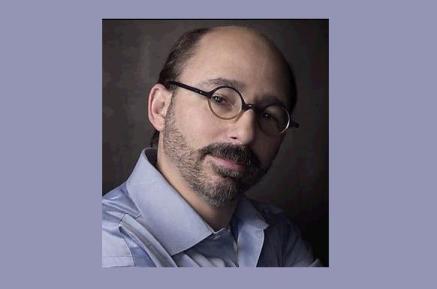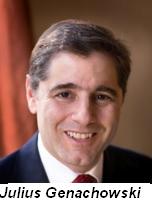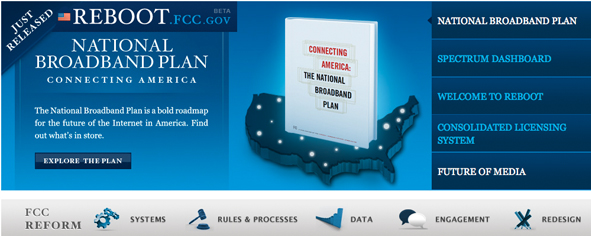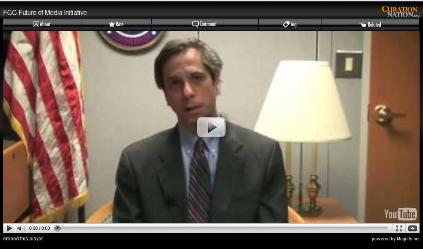The FCC Asks - "What Should We Do?" - Steve Rosenbaum - MediaBizBloggers

Here are three ideas (and one thing not to do)
The history of the FCC (Federal Communications Commission) is hardly simple. The FCC was formed to manage the public's access and use of "Spectrum". It has bounced from technical issues, to issues of free speech and balance. But as we exit the era of scarcity - and arrive at an era of bandwidth and content abundance, the role of this powerful Federal Agency is far from clear.
In the past three weeks, I've spent more time listening and talking with officials from the FCC than at any other time during my entire career in technology and communications. This isn't because I've sought them out, but rather because the FCC is making a concerted effort to reach beyond the beltway and talk with stakeholders in the future of communications. More on that in a moment.
First, a bit of history. The FCC was created in 1934, replacing the Federal Radio Commission as an agency that regulates spectrum. In particular, interstate telecommunications including phone, satellite, wireless, and cable.
Cable is tricky for the FCC as it doesn't really have a mandate to regulate private cable companies who are given local franchise licenses by local government. You see cable isn't a scarce resource like spectrum, in fact cable is private and relatively plentiful - you can always string more in theory.
So, the FCC's basic mandate to regulate spectrum is expanding to more broadly oversee policy around the critical issues facing our country today. The internet is perhaps our most critical technical resource, as it acts as the backbone of all of the innovating that is driving both start ups and evolving technology companies.
The FCC Chairmen knows this well. As both an operator and an innovator, Julius Genachowski represents a new kind of Chairman. Having known President Obama since College, he advised and guided the Obama campaign's innovative use of technology and the Internet for grassroots engagement and participation. Simply put - it was Genachowski who pushed the agenda that moved the Obama campaign's use of public outreach (both for communication and fundraising) to the forefront. History will write those were paradigm shifting decisions.
Having known President Obama since College, he advised and guided the Obama campaign's innovative use of technology and the Internet for grassroots engagement and participation. Simply put - it was Genachowski who pushed the agenda that moved the Obama campaign's use of public outreach (both for communication and fundraising) to the forefront. History will write those were paradigm shifting decisions.
So, here's the challenge the FCC Chairman faces. He listened to the concerns and issues facing some of the Country's largest media and telecommunications companies. As agile new competitors are born on the web, companies like Viacom, Time Warner, Comcast, and Newscorp are all lobbying hard to protect their franchises and release them from the strictures of regulation that limit ownership and consolidation of media properties. Of course, he has to listen. And as the former COO of Barry Diller's IAC - Genachowski knows all too well how critical those government regulation can be.
And yet, he's a startup guy as well. As the co-founder of Launch Box Digital, a DC based incubator that describes itself as: "a place for cutting-edge ideas and cutting-edge talent." (http://www.launchboxdigital.com).
So - at a critical time in US Telecommunications policy, the FCC Chairmen is uniquely suited to understand the nature of the crossroads we face - and the tricky nature of government's ability to either help or hinder innovation.
The good news is he's engaged. The question is do I really want to see "beta" on a Federal Government website... hmm, just not so sure.

Here are three things he can do now that will make a difference:
1. Listen. He's begun that journey, but there's more. Reach beyond the folks with conventional access. Don't let lobbyist be the loudest voices in this debate. The legacy stakeholders have the money, power, and experience to drown out the emerging new innovators. Noted blogger and social media thinker Anil Dash has started ExpertLabs as a not for profit to help government engage in a conversation with the country. (http://expertlabs.org/) He's offered to help the FCC engage in a conversation about the future of Telecommunications Policy, and you should take him up on that.
2. Put teeth in Net Neutrality. The Washington insiders are shaping this up to be a battle between 'old' and 'new' media. On one hand, Comcast, AT&T, Verizon and Time Warner's of the world the world say they provide good service without any regulation from the FCC. On the other hand, Google, Yahoo!, Amazon and eBay say Net Neutrality is critical to allow for innovation. In point of fact, the startups that care about a truly open web are companies you haven't even heard of yet. Some are still operating in a garage. They need open access, and improved US wireless broadband infrastructure.
3. Engage privacy. Historically this has been an FTC issue - but our personal data - and how it's stored and shared, is the big looming issue that will impact employment, insurance, free speech, and innovation. There needs to be leadership around privacy from an agency that understands its complexity.
I applaud the FCC Chairman for asking big questions - but at the same time, it is worth remembering that there are some problems that may be best served by being left to the marketplace. While hardly a foregone conclusion, the investigation being conducted by an FCC initiative called Future of Media (http://reboot.fcc.gov/futureofmedia). The web site describes the project's goals: "to help ensure that all Americans have access to vibrant, diverse sources of news and information that will enable them to enrich their families, communities and democracy."
There's no doubt that media is changing. The question is - do we want the FCC to regulate 'media' and help us 'meet local media need'? Here's a place where students of the FCC will remember the now somewhat famous PTAR rules (Prime Time Access Rules). PTAR was put in place to get more local television production from local TV License holders (which the FCC has authority over). PTAR limited local stations ability to program network shows from 7 to 8pm. The so-called "local access" hour begat Syndicated television, providing such public service gems as Inside Edition, Hard Copy, Wheel of Fortune, Jeopardy, and the most memorably A Current Affair.
In the world of unintended consequences - PTAR is a shining example. So, as the FCC wades into the content waters again, it's worth remembering that some forces tend to react in unpredictable ways to public rule-making. Content may be one of them.
Steven Rosenbaum is the CEO and Co-Founder of Magnify.net - a fast-growing video publishing platform that powers more than 50,000 web sites, media companies, and content entrepreneurs to aggregate and curate web video from a wide variety of web sources. Currently Magnify.net publishes over 50,000 channels of Curated-Consumer Video, and is working closely with a wide variety of media makers, communities, and publishers in evolving their content offerings to include content created by, sorted and reviewed by community members. Rosenbaum is a serial entrepreneur, Emmy Award winning documentary filmmaker, and well known innovator in the field of user-generated media production. Rosenbaum Directed and Executive Produced the critically acclaimed 7 Days In September, and his MTV Series Unfiltered is widely regarded as the first commercial use of Consumer Generated Video in US mass media. Steve can be contacted at steve@magnify.net Follow Steve Rosenbaum on Twitter: www.twitter.com/magnify
Read all Steve’s MediaBizBloggers commentaries at Steve Rosenbaum - MediaBizBloggers.
Check us out on Facebook at MediaBizBloggers.com
Follow our Twitter updates @MediaBizBlogger


